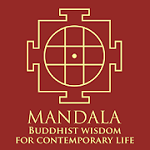
|
|
|
Home Asia Pacific South East Asia Myanmar Myanmar Protest News Time to Stop Coddling the Burmese GeneralsBy Htet Aung, Irrawaddy, October 16, 2007Rangoon, Burma -- The political game in Burma is at its apex and members of the international community who are concerned about the nation’s future are trying to shed light on how things should go from here.
<< General Tan Shwe, head of the Burmese military junta The Institute of Security and International Studies (ISIS) under the Faculty of Political Science at Chulalongkorn University in Bangkok held a public forum on Monday on “Burma’s Crisis: Ways Forward” with scholars, politicians, journalists, diplomats, and Burmese students attending. Among the speakers at the forum were Larry Jagan, a former veteran editor with BBC World Service and currently a freelance journalist covering Burma, and Aung Zaw, the founder and editor of the The Irrawaddy magazine, who, as a student, took part in the 1988 popular uprising. “We have to keep the issue alive, and we have to keep the momentum going,” said Aung Zaw, who knows firsthand the smell of tear gas and blood on the streets of Rangoon.
Jagan, who is based in Bangkok, suggested the Burmese army is in a different position today than in 1988. “The army is fractured, [but] it is not split,” said Jagan, who suggested this time the loyalty of the army to the generals may be tested in future days. The possibility of a coup against the ruling generals is one of the scenarios noted by analysts, who also point out that the majority of soldiers are illiterate and easily indoctrinated to believe they are defenders of the country when following the orders of Snr-Gen Than Shwe and other commanders. The UN has taken a leadership role in trying to mediate between the generals and Aung San Suu Kyi, the defacto leader of pro-democracy groups in the country, but the outcome of the efforts by UN special envoy Ibrahim Gambari will not be known until he returns to the country for a second round of talks between the two sides. Now on a consultation tour of key countries in the region, Gambari said on Monday the junta's continued efforts to hunt down pro-democracy protesters was of great concern. “It is extremely disturbing. It runs counter to the mutual agreements between the UN and Myanmar [Burma],” Gambari said, after meeting with Thailand's Foreign Minister Nitya Pibulsonggram. Gambari is being urged by activists inside and outside Burma to engage the generals in talks as soon as possible. Observers say he is likely to revisit the country in November, if the generals decide to bow to the pressure of the international community. During Gambari's talks in Thailand, Prime Minister Surayud Chulanont proposed that Asean-member countries take an active role in mediating with the regime, along with China, India and Japan, similar to the multi-party talks held during recent negotiations with North Korea. In fact, Burma offers an historic opportunity for Asean-member countries to change their image of stressing economic interests at the expense of human rights and good governance in the region. The violent attacks on Buddhist monks engaged in peaceful demonstrations were an attack on the institution of Buddhism in a region where Buddhism is one of the dominate religions. There is a Burmese saying: “Don’t play the harp for a buffalo’s enjoyment.” It's time for Asean-member countries and other concerned countries who continue to take a soft line against Burma's ruthless generals to play a different tune. |
 Get your Korean Buddhist News here, brought to you by BTN-Buddhist Channel |
 |
 The Mandala app brings together Buddhist wisdom and meditation techniques with the latest insights of psychology and neuroscience to handle the challenges and complexities of modern life. The App offers a series of engaging talks and conversations with experts on a wide variety of topics, such as managing stress, dealing with adversity, developing greater resilience, cultivating empathy and compassion, creating healthy relationships, and many more. These topics are explored to help find greater peace, meaning and joy in our lives. Our panel of experts include Dr, Thupten Jinpa, Daniel Goleman, Kelly McGonigal and others.FREE DOWNLOAD here |
| Point
your feed reader to this location |
| Submit an Article |
| Write to the Editor |


